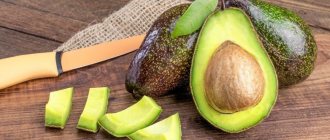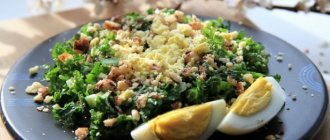Properties of the fruit
The fruits can only be useful for people with normal, zero or low stomach acidity. If, according to the diagnostic results, the test showed an excessive concentration of hydrochloric acid, eating the fruit will only worsen the situation. In case of gastritis with high acidity, pomegranate juice eats away the gastric mucosa, increasing foci of inflammation. When a person suffering from gastritis has reduced production of hydrochloric acid, pomegranate fruits can be used without fear.
The fruit consists of peel, grains and juice. Each part contains a large amount of vitamins. Pomegranate peel consists of compounds rich in mineral salts. The seed pulp contains sugars, organic compounds, citric and malic acids. The edible part of the fruit makes up 65–68% of the total mass.
The beneficial properties of the fruit are associated with the high content of biologically active elements:
- vitamin B – prevention of anemia caused by antral gastritis;
- ascorbic acid is a powerful antioxidant that protects against the proliferation of pathogenic bacteria;
- fruit acids speed up metabolism;
- vitamin E heals damaged mucous membranes;
- potassium restores the gastric mucosa at the cellular level;
- manganese stimulates the pancreas and liver;
- iron is well absorbed by the body in combination with vitamin C;
- niacin is involved in metabolic reactions;
- tannins heal ulcers and have an antimicrobial effect;
- flavonoids destroy the bacterium Helicobacter pylori;
- magnesium calms the nervous system, which increases the period of remission.
Pomegranate also contains saturated fatty acids, which help absorb chemical elements from the product and accelerate the process of tissue regeneration.
Exacerbation of gastrointestinal diseases is often accompanied by dysbiosis. Tannins in pomegranate have the ability to suppress pathogenic microflora without blocking the growth of beneficial bacteria. Thanks to this property, plant compounds eliminate diarrhea and intestinal discomfort.
What are the benefits of pomegranate
The fruit is rich in vitamins and nutrients . The components included in its composition include:
- ascorbic acid – strengthens the immune system, has a beneficial effect on the condition of the stomach and liver;
- B vitamins – strengthen the nervous system and improve liver condition;
- tannins - characterized by antioxidant properties, their amount in pomegranate exceeds even the content in green tea;
- folic acid and vitamin PP - are involved in many metabolic processes;
- amino acids – participate in protein synthesis;
- fatty acids – essential for cell membranes and blood vessel walls.
Minerals included:
- calcium;
- magnesium;
- potassium;
- manganese.
Pomegranate also contains boron, zinc, selenium, iron, and copper.
Magnesium is necessary for the normal functioning of the nervous system. Against the background of its defects, gastritis develops. Strengthens mental balance and potassium. It is also necessary for regenerative processes when restoring the mucous membrane of the stomach walls. Manganese is involved in the functioning of the liver and pancreas - and, consequently, the functioning of the digestive system as a whole.
On our website: Watermelon for gastritis - is it possible or not?
Benefit for hypoacid form of the disease
The fruit has valuable properties for patients with low acidity levels, as they increase the production of gastric juice. Benefits of pomegranate for the digestive system:
- strengthens for intestinal disorders;
- heals damaged stomach walls;
- improves appetite;
- destroys pathogenic microorganisms;
- relieves inflammation.
With hypoacid gastritis, you can eat pomegranate seeds during remission. During an exacerbation, the product is prohibited from being consumed, like other sour fruits.
Useful properties of pomegranate seeds
- Controls insulin secretion.
- Helps in the treatment of inflammatory and infectious diseases.
- Increases the body's defenses.
- The product normalizes digestive, lipid and metabolic processes.
- Improves intestinal motility.
- Inhibits the growth of cancer cells.
- Stimulates appetite.
- Cleanses the body and circulatory system.
- Increases hemoglobin levels.
- Prevents the development of varicose veins and the formation of cholesterol plaques.
- Promotes rejuvenation, prevents aging processes.
- Positively affects the functioning of the gastrointestinal tract, pancreas, and liver.
- Regular consumption of the fruit normalizes blood sugar levels.
- Has a beneficial effect on the heart and vascular system.
- As a prophylactic agent, it prevents complications of chronic diseases.
- Potassium absorption improves.
- Natural antiseptic.
- Normalizes hormonal levels in a woman’s body.
- Protects the intestinal mucous membranes from the effects of negative factors.
- It has anti-inflammatory, antimicrobial, astringent properties.
- Indicated for increased mental and physical stress.
- Prevents the development of arthritis and atherosclerosis.
- Fruit juice will also be useful for gastrointestinal diseases, as it stimulates digestive processes.
Eating fruits for hyperacid gastritis
Pomegranate juice for gastritis with high acidity will harm the stomach. Organic acids and sugars in the drink will intensify the inflammatory process, and the affected areas of the mucous membrane will increase in size. Drinking pomegranate juice in its pure form can lead to an exacerbation of the disease during remission. The drink will increase acidity even more, which will cause heartburn and stomach cramps.
For gastritis with an increase in the concentration of secretions, you can drink a little diluted pomegranate juice. Dilute the drink 1:1 with water. It is best to drink it 30–40 minutes after eating. On an empty stomach, even diluted juice will cause heartburn. If the pomegranate is ripe, it contains less acid, so a handful of grains of such fruit will not harm during the period of remission.
Rules of use
If no significant contraindications have been identified, and the doctor has allowed pomegranate to be included in the menu, you must remember to use a sense of proportion. Eat it no more than several times a month, and you should not consume the whole specimen at once - a couple of pieces in the form of slices is enough. Don't swallow the grains - they need to be spat out.
To prevent pomegranate juice from harming your stomach, you need to:
- drink only fresh product;
- avoid options with a lot of sugar;
- do not add spices or salt.
If you want to drink a glass of juice, you need to dilute it with clean filtered or boiled water without gas - in a ratio of 1:2.
Benefits of pomegranate peels
In case of hyperacid form of gastritis, during the period of exacerbation, it is prohibited to drink pomegranate juice; you can only drink a decoction or infusion from the peel. This remedy has a beneficial effect on the stomach with high production of hydrochloric acid.
The crusts contain minerals that have a restorative effect on wounded cells. They do not contain fruit acids. Tannins and flavonoids in pomegranate peel suppress pathogenic microflora and relieve inflammation.
The astringents contained in pomegranate peel help with diseases:
- viral and parasitic intestinal infections;
- colitis;
- enterocolitis;
- dysentery.
The crusts contain substances that suppress the proliferation of pathogens on the gastric mucosa. The microflora of the stomach returns to normal, the regeneration of damaged tissues accelerates.
Peel decoction
To prepare the product, the crust is crushed. You can use dried peel. A tablespoon of crusts is poured into 200 ml of boiling water and boiled for 30 minutes. The decoction is consumed 30 minutes before meals. It is used to treat gastritis during exacerbation. The drug is taken until the symptoms of the disease disappear. During the period of remission, the decoction is drunk for prevention.
Tincture
The drink is prepared from several components in equal proportions. The infusion recipe includes a mixture of ingredients:
- pomegranate peels;
- mint;
- ginger;
- green tea.
The raw materials are ground with a coffee grinder. Pour a teaspoon of the medicinal mixture into a glass of hot water and bring to a boil. The mixture is infused for 30 minutes, wrapped in a towel. An infusion of pomegranate peels is drunk regardless of meals 3 times a day. Before use, it is recommended to add a teaspoon of honey to the product. This component will enhance the healing effect of the collection.
A decoction and infusion of fruit peels is useful for gastritis, but taking this remedy does not replace drug treatment.
Valuable composition
The pomegranate ripening season begins in October and ends in November. By winter, the period of colds, the natural immunostimulant will have time to arrive in every home. These fruits can be stored at room temperature for a month.
Pomegranates quench thirst well, increase hemoglobin and stimulate the production of red blood cells. They are also allowed for those who follow a diet, including a vegetarian one. The total calorie content is 83 kcal, and its freshly squeezed juice is 64 kcal.
Thus, it is classified as a low-fat product that is allowed when losing weight.
The pulp and juice of the fruit are rich in:
- vitamin C, which helps strengthen the immune system, protecting against stomach infections;
- vitamins B6 and B12, which have a beneficial effect on the human liver and nervous system;
- various acids - nicotinic, folic, which are indispensable for proper metabolism in our body;
- calcium, which is involved in the production of enzymes;
- magnesium, which helps cope with stress, exhibiting an antidepressant effect;
- flavonoids and tannins, which have an antimicrobial effect.
The sweet nectar of this fruit is used to treat colds: sore throat, cough. Its use is also indicated at high temperatures. In addition, the brown elixir remains a very popular anti-inflammatory agent.
For throat diseases, doctors recommend gargling with pomegranate juice diluted with boiled water.
Useful properties of pomegranate
In terms of its biologically active effects, pomegranate is superior to many other fruits. Its grains are also used in cooking, used in the fight against viral diseases, strengthening the immune system. This happens due to the fact that it contains essential vitamin C. In addition, the benefits of pomegranate include:
- improving blood composition and increasing hemoglobin;
- normalization of pressure;
- relaxation of the nervous system;
- maintaining optimal blood sugar levels.
In addition, pomegranate and a drink made from its core are prescribed to patients in the postoperative period to restore the body's strength and heal wounds, and regular consumption of juice reduces the risk of developing cancer. In addition, it is prescribed for atrophic colitis, enterocolitis and diarrhea. Its use is allowed even with diabetes.
Pomegranate juice helps to cope with dysbiosis, which is a frequent accompaniment of poor stomach function. The drink relieves the symptoms of the disease, and the patient’s condition improves. This property of the juice is explained by the presence of acids in it, which have a disinfecting effect.
How to choose a pomegranate?
The most useful fruits are the Turkish pomegranate. They contain the optimal concentration of sugar and fruit acids. The fruits do not ripen after harvest. Unripe pomegranate causes damage to the stomach walls during gastritis. Excess acid causes pain and discomfort.
Ripe pomegranate has a dense, ribbed crust of pink or red color. The peel fits tightly around the contents of the pomegranate. Orange and brown color of the crust indicate that the fruit is beginning to rot. The top of the pomegranate should be dry, with no signs of germination.
The healing properties of pomegranate are widely used in the treatment of gastritis and other diseases of the gastrointestinal tract. The beneficial components in the fruit relieve symptoms of intoxication and restore the microflora of the stomach. People with high acidity can only consume ripe pomegranate in small quantities. In case of exacerbations of gastritis, you can only take an infusion or decoction of the crusts of the fruit.
We recommend: Is it possible to eat ice cream if you have gastritis?
Causes of acne formation
Various diseases of the internal organs lead to a rash on the face. Improper diet with excess sweet and fatty foods, nervous overload, and incorrectly selected cosmetics contribute to the development of the disease. With insufficient facial hygiene, the skin is poorly cleansed from harmful environmental factors and the pores become clogged with dead skin cells along with particles of dust and dirt.
Diseases that lead to acne:
- Disruption of the endocrine glands. Acne on the face often forms during the period of hormonal changes in the body (teenagers, pregnant women, premenopausal women). Acne appears before menstruation in women, when the production of steroid hormones is increased. Sometimes endocrine diseases (diabetes mellitus, obesity, dysfunction of the pituitary gland and adrenal glands) contribute to the appearance of acne.
- Diseases of the gastrointestinal tract. Acne can appear due to dysfunction of the liver, stomach or intestines. With constipation, harmful substances begin to be absorbed through the intestines back into the blood, toxins are released through the skin, and a rash appears.
- Skin pathology (infection, hyperkeratosis).
Types of acne by appearance:
- Acne. Small pimples are red in color and increase in size as they mature. A white head forms, and pus is released from the top after opening. Such acne often appears during adolescence. In adults, acne occurs with endocrine diseases, pathology of the stomach and intestines.
- White pimples. They are formed when the sebaceous glands malfunction at any age. Diseases of internal organs contribute to their development.
- Pink pimples. Appear in the area of small capillaries on the skin. A common cause of their occurrence is gastritis with low acidity.
- Blackheads. They are formed as a result of blockage of the ducts of the sebaceous glands due to poor nutrition, obesity, and constipation.
- Medicinal acne. Appear when taking steroid drugs, excess bromine, iodine, or exposure to chemicals orally or in the form of ointments.
Why do acne appear with gastritis?
Gastritis is often caused by the pathogenic microorganism Helicobacter pylori, which contributes to the development of atopic dermatitis. Rashes of various types appear on the face and body. Acne with gastritis occurs in the form of areas of skin redness, blisters or swelling. The rashes are accompanied by itching; when scratching, an infection occurs, then pimples with purulent contents form. Often such dermatitis appears in children, and in adults it recurs with a decrease in immunity.
Helicobacter pylori
In people over 40 years of age, Helicobacter causes pink acne; women are more often affected. In addition to the skin, the mucous membranes of the eyes are affected; at the same time, patients complain of photophobia and lacrimation.
With gastritis with low acidity, a violation of the absorption of vitamins and microelements occurs, anemia occurs, which contributes to the development of dry skin and the appearance of acne on the face.
Tips and tricks
Inflammation of the mucous membrane is not easy to get rid of. Proper nutrition plays a big role. Although pomegranate is very beneficial, its improper use can be harmful. In addition to these cases, you should not eat it if you have gastritis in the following situations:
- For constipation. Pomegranate seeds, as well as the juice and peel of the fruit, are characterized by a fixing effect. Regular consumption of pomegranate can complicate bowel movements, which can cause intoxication of the body.
- Duodenal ulcer.
- Presence of erosions in the stomach. Acid damages the mucous membrane, so the presence of ulcers and erosions is a direct contraindication to eating the fruit. Existing lesions increase in size under the influence of acids.
You should not introduce this product into your diet without consulting your doctor. However, even with his consent, if pain and discomfort arise after eating pomegranate, it should be abandoned. Proper nutrition, treatment in accordance with your doctor's prescription, proper rest and walks in the fresh air will help you recover faster.
You can learn how to eat with gastritis by watching the video:
source











